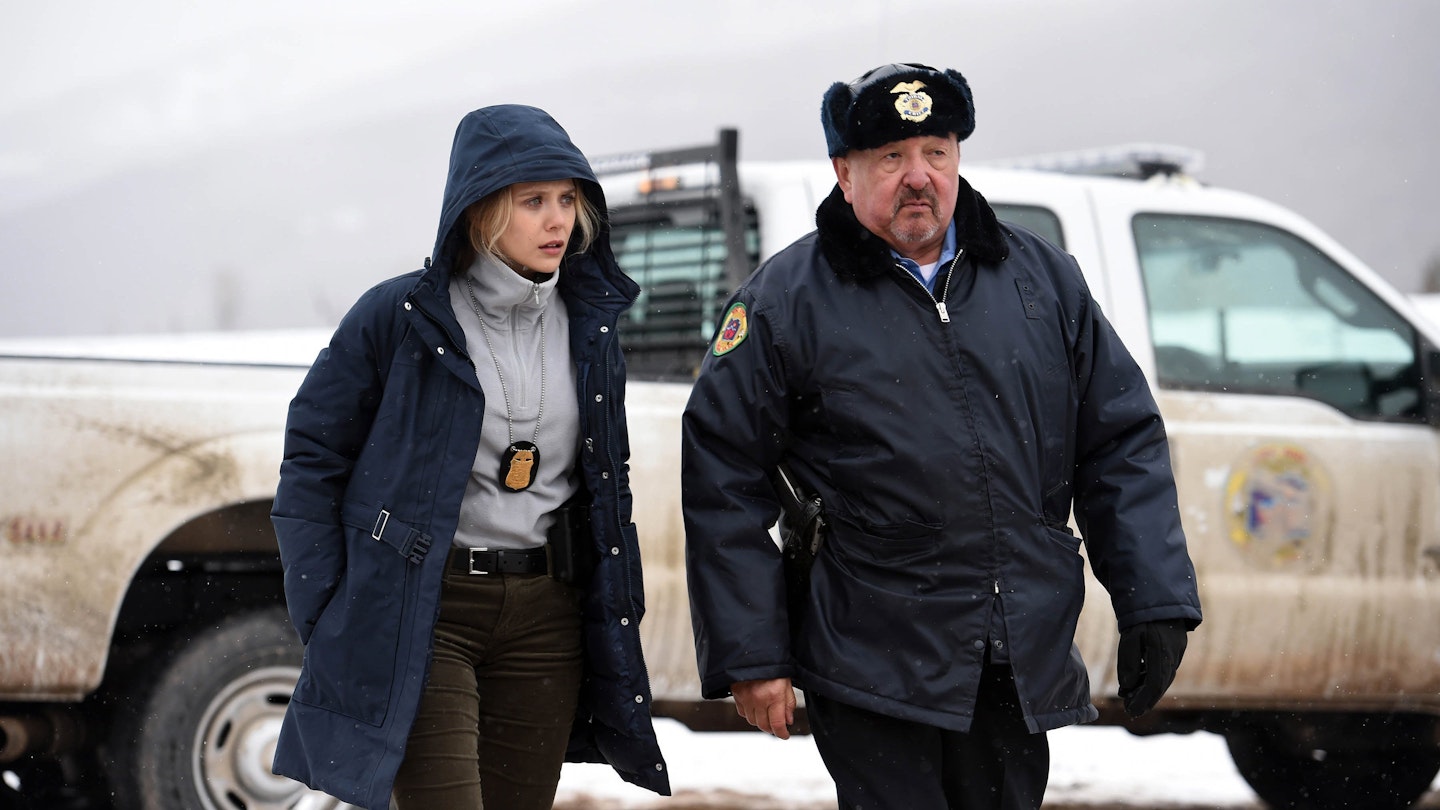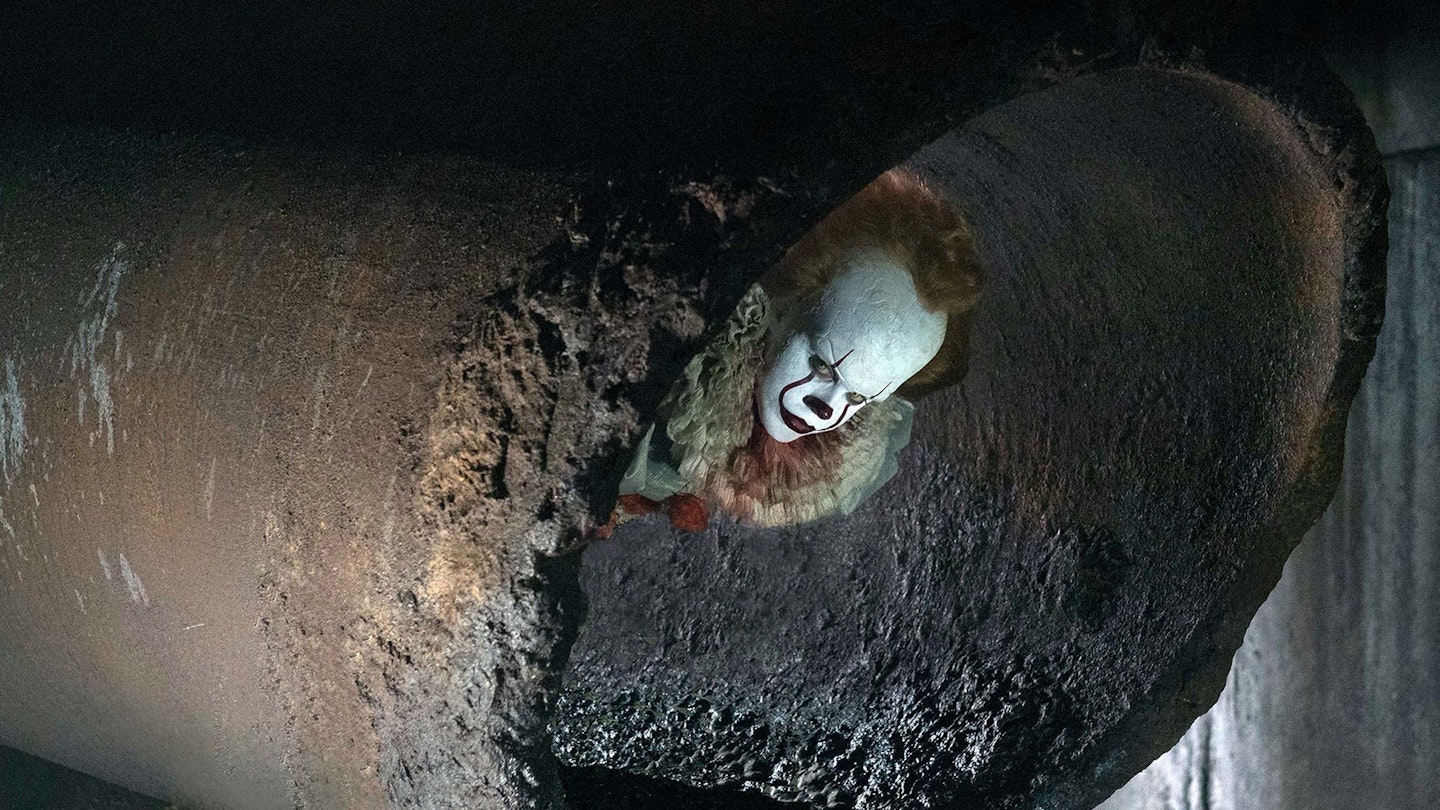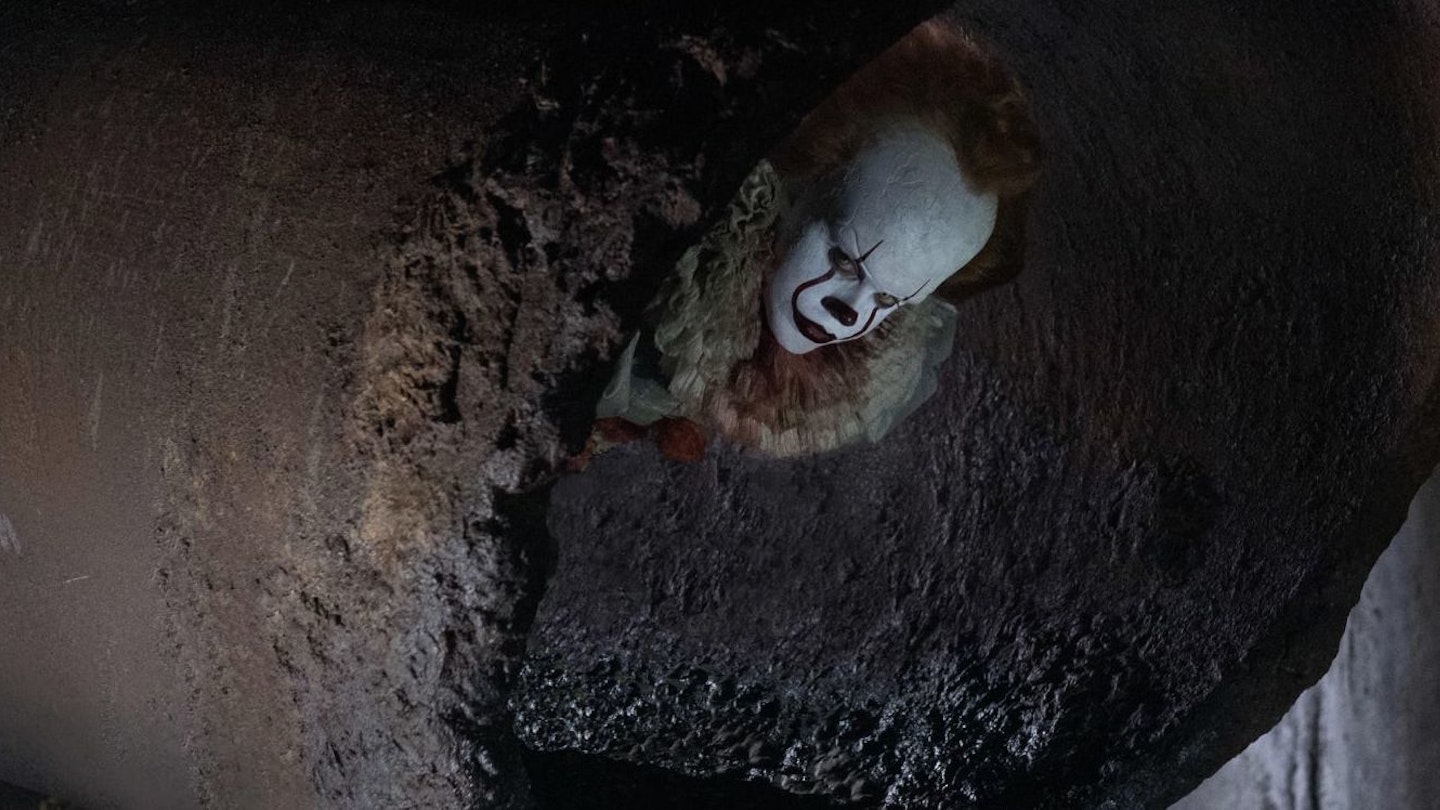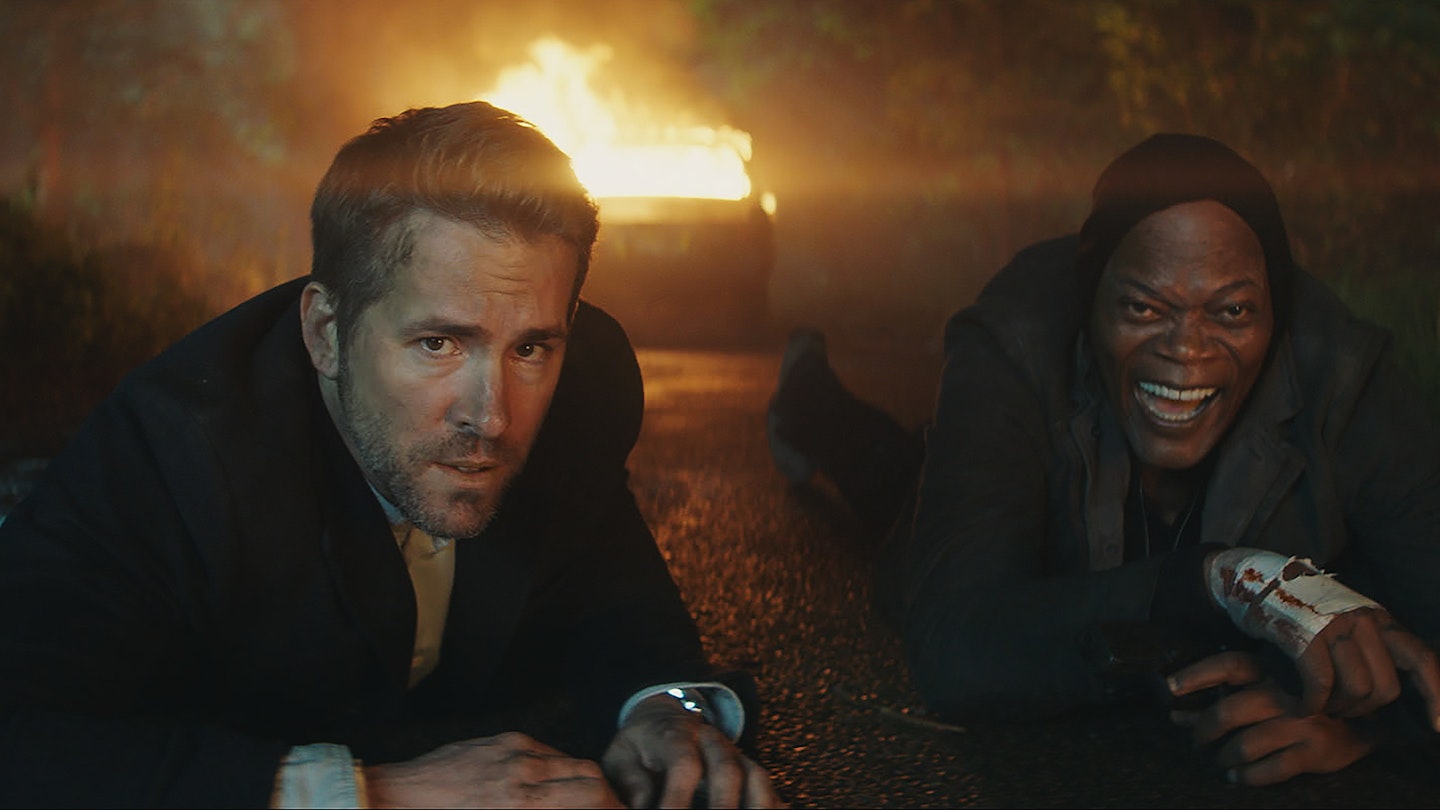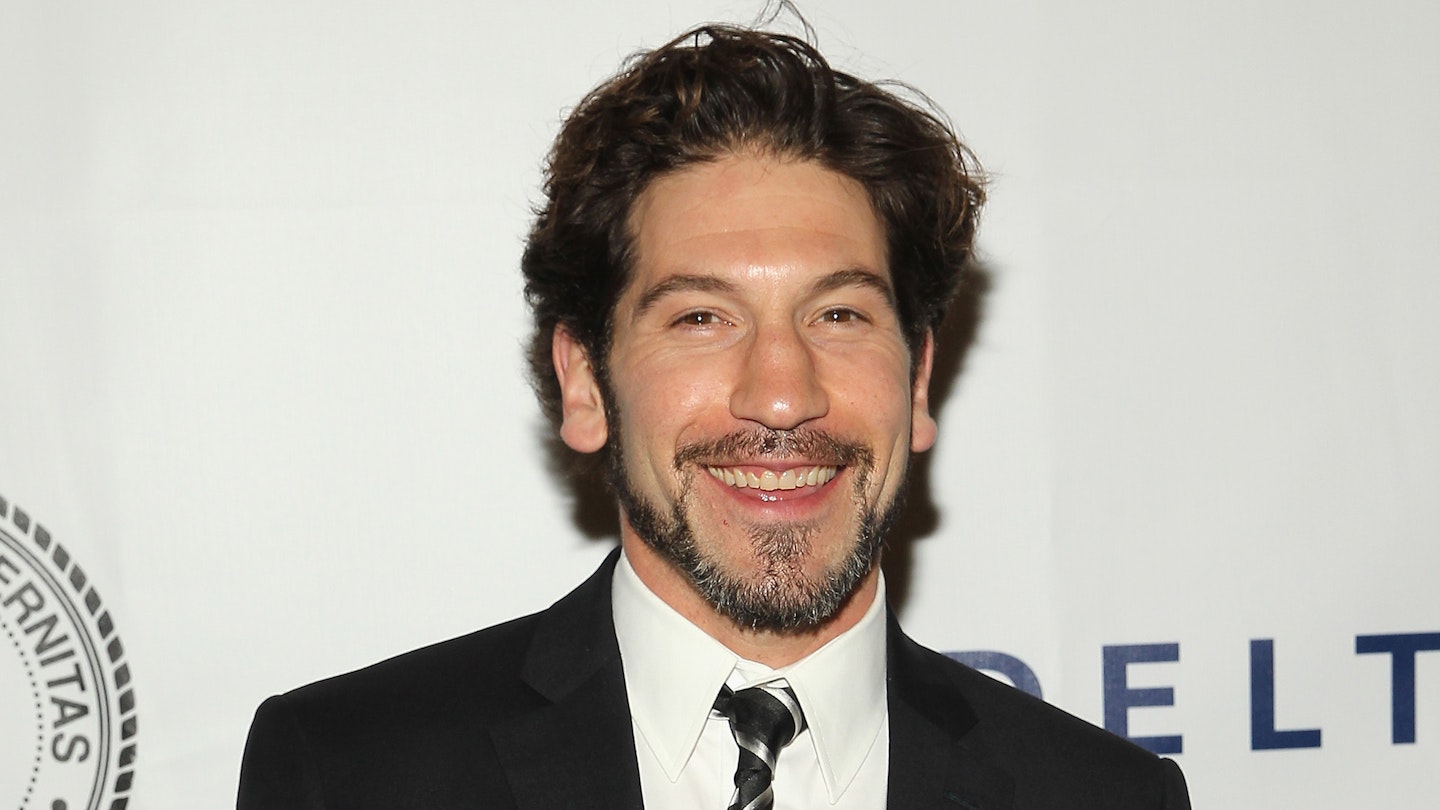Taylor Sheridan wrote Sicario and Hell Or High Water. With both well-received and his profile raised, he’s cashed in his chips to make this, his ‘proper’ debut as director, sheepishly nudging 2011 torture porn Vile off his CV. And while Wind River has all the grit and desperation of the Denis Villeneuve and David Mackenzie films, that pair are two of the greatest directors of their generation. Here, Sheridan’s shortcomings are laid brutally bare.
Taylor Sheridan’s flair for creating heartland epics is undimmed.
The opening is striking: Natalie Hanson (Kelsey Chow), barely dressed, is running barefoot through a snowy wilderness as, in voiceover, she reads a heartbreaking teenage love letter. It’s pretty clear she’s not long for this Earth, and soon US Fish And Wildlife Service agent Cory Lambert (Renner) discovers her body and an autopsy determines she was raped. The Feds send rookie agent Jane Banner (Olsen) to the bleak Wyoming Indian reservation the girl was found on, and Lambert becomes her guide as they inch towards finding Natalie’s killer.
Inching really is the word. Wind River is similar in tone to Sicario and Hell Or High Water but Sheridan’s presence behind the camera offers an elegant demonstration of what a director actually does. “Pacing” can mean whatever the person using it wants it to, but it’s one of the key jobs of the director. It’s choosing how quickly information is doled out, what to underline and what to elide.
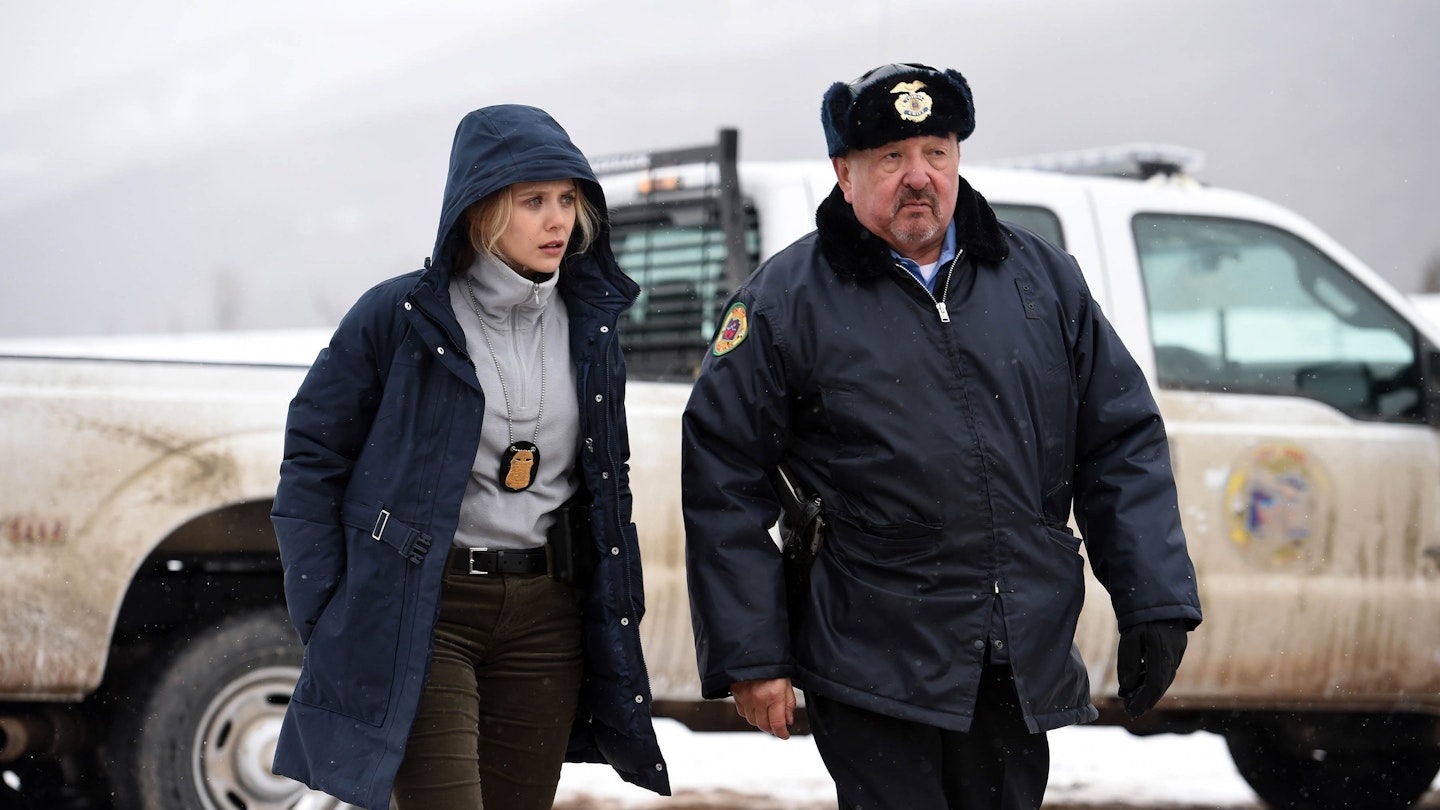
Sheridan makes some odd decisions in this regard, and ends up stepping on his own film. Given the horrendous nature of Natalie’s death — choking to death on her own blood — there doesn’t seem to be any huge rush in finding her killer. The impact of her loss on her family is handled all too swiftly, with a brief glimpse of a self-harming mother and a father asking Renner to make sure the murderer isn’t caught alive. The suspicion is a Mackenzie or Villeneuve would have found a way to make all this land, but to Sheridan it’s almost an afterthought, and comes after we meander for the best part of an hour into his film. There are striking landscape shots (and some of the best skidoo-riding footage you’ll see), but this is a prestige-feeling project without a prestige look, outside those locations.
That said, Sheridan is still a superb writer. Wind River vividly recreates the bleak, impoverished feel of a real-life reservation where life is tough and the people that little bit tougher. It’s yet another script that feels as though it could be an adaptation of a Nick Cave song — and, aptly enough, Cave and Warren Ellis have delivered another excellent score here.
Renner does fine work, too, totally convincing as a grief-stricken outdoorsman, equally at home hoofing around in show shoes as delivering a striking monologue that reveals why he’s invested so much in this case. Olsen is less effective, but has less to work with. By the end, she’s little more than a bystander as Lambert embarks on his quest for vicarious revenge.
In the final movement, things reach a grand moral intensity far from the slice-of-life opening. We’ve moved from a docu-drama-style look at how grim life can be for people on the fringes of society to a kind of Cormac McCarthy tale in thermals. Shorn of the wobbly indecisiveness of earlier, the elemental impulses in the narrative are laid bare. Sheridan writes about the dangerous liminal zones of contemporary America, where everybody has a gun and a secret. It’s an America previously inhabited by the likes of Brolin, Bridges and Del Toro, and Renner is their equal. It’s just a shame the second pair of expert eyes weren’t on hand to give him a better entrance.
